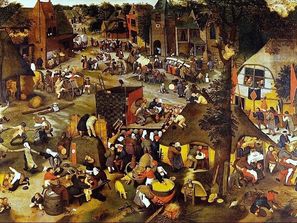From Click to Boom: The Political Economy of E-commerce in China
(Forthcoming 2024, Princeton university Press)
How the world’s largest e-commerce market highlights a digital path to development
How do states build vital institutions for market development? Too often, governments confront technical or political barriers to providing the rule of law, contract enforcement, and loan access. In From Click to Boom, Lizhi Liu suggests a digital solution: governments strategically outsourcing tasks of institutional development and enforcement to digital platforms—a process she calls “institutional outsourcing.”
China’s e-commerce boom showcases this digital path to development. In merely two decades, China built from scratch a two-trillion-dollar e-commerce market, with 800 million users, seventy million jobs, and nearly fifty percent of global online retail sales. Contrary to conventional wisdom, Liu argues, this market boom occurred because of weak government institutions, not despite them. Gaps in government institutions compelled e-commerce platforms to build powerful private institutions for contract enforcement, fraud detection, and dispute resolution. For a surprisingly long period, the authoritarian government acquiesced, endorsed, and even partnered with this private institutional building despite its disruptive nature. Drawing on a plethora of interviews, original surveys, proprietary data, and a field experiment, Liu shows that the resulting e-commerce boom had far-reaching effects on China.
Institutional outsourcing nonetheless harbors its own challenges. With inadequate regulation, platforms may abuse market power, while excessive regulation stifles institutional innovation. China’s regulatory oscillations toward platforms—from laissez-faire to crackdown and back to support—underscore the struggle to strike the right balance.
How do states build vital institutions for market development? Too often, governments confront technical or political barriers to providing the rule of law, contract enforcement, and loan access. In From Click to Boom, Lizhi Liu suggests a digital solution: governments strategically outsourcing tasks of institutional development and enforcement to digital platforms—a process she calls “institutional outsourcing.”
China’s e-commerce boom showcases this digital path to development. In merely two decades, China built from scratch a two-trillion-dollar e-commerce market, with 800 million users, seventy million jobs, and nearly fifty percent of global online retail sales. Contrary to conventional wisdom, Liu argues, this market boom occurred because of weak government institutions, not despite them. Gaps in government institutions compelled e-commerce platforms to build powerful private institutions for contract enforcement, fraud detection, and dispute resolution. For a surprisingly long period, the authoritarian government acquiesced, endorsed, and even partnered with this private institutional building despite its disruptive nature. Drawing on a plethora of interviews, original surveys, proprietary data, and a field experiment, Liu shows that the resulting e-commerce boom had far-reaching effects on China.
Institutional outsourcing nonetheless harbors its own challenges. With inadequate regulation, platforms may abuse market power, while excessive regulation stifles institutional innovation. China’s regulatory oscillations toward platforms—from laissez-faire to crackdown and back to support—underscore the struggle to strike the right balance.
"The present…(is) in large measure the prisoner of a past...
and the past with its rules, its differences and its similarities, (is) the indispensable key to any serious understanding of the present."
(Fernand Braudel, The Wheels Of Commerce, 1982: 20)
and the past with its rules, its differences and its similarities, (is) the indispensable key to any serious understanding of the present."
(Fernand Braudel, The Wheels Of Commerce, 1982: 20)



